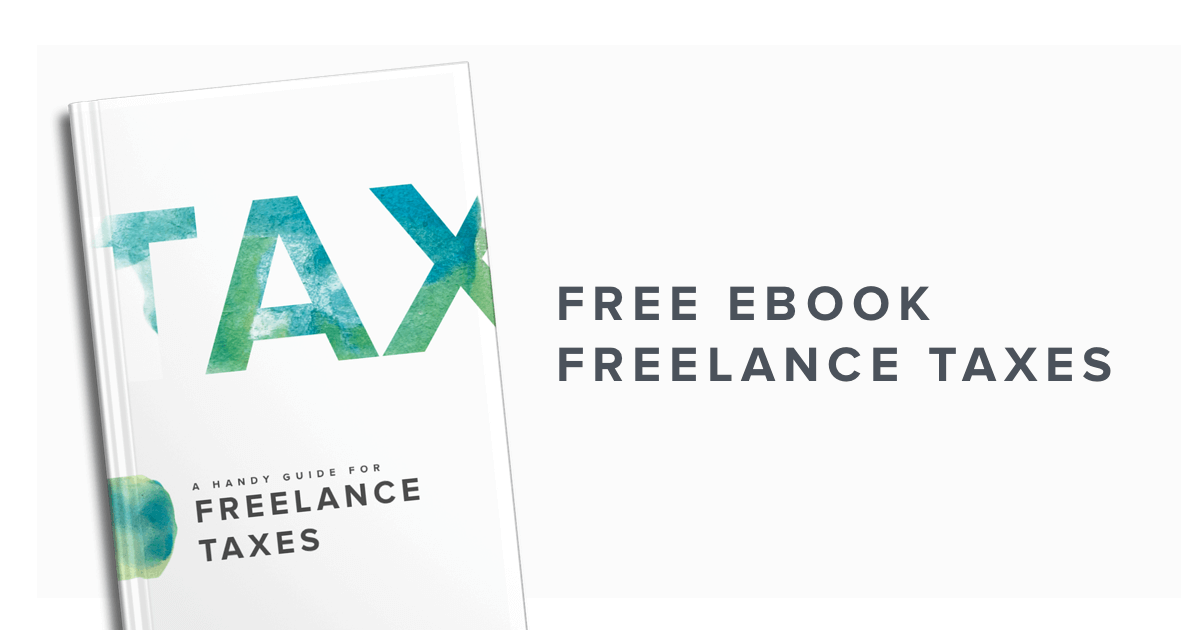One of the most daunting aspects of working for yourself is money. How will you earn it and keep a steady flow of payments for the invoice templates you submit? And more importantly, how will you track your freelance expenses? While monitoring income and expenses is vital for all freelancers to quickly and easily master, there's a bit of confusion as to what's desirable and trendy vs. what's essential and necessary.
Bookkeeping (or “accounting”, as some prefer to call it) should be something you pay attention to, however. If you’re not sure what your process is or the goals you have for your business, now’s the time to prioritize. Here are our best bookkeeping tips for freelancers of all industries, experience levels, and worth.
Note: If you want an east way to track business expenses and maximize your tax deductions at the end of the year, try Bonsai Tax. Our tax software records your receipts and reminds you of important filing deadlines. On average, users save on average $5,600 from their tax bill. Claim a 7-day free trial here.
1. Account for everything
The beginning months of freelancing can seem bleak. You likely have a good number of expenses going out, all vital to getting your new business up and running. Your client list, on the other hand, can be lacking. To build esteem and trick themselves into feeling right about their endeavors, many freelancers avoid counting all of their expenses – and this is a terrible move.
Even if your numbers are clearly in the red, with profit a long way off, it's never wise to pretend you are doing better than you are. Count your expenses (all of them) and be realistic about where you are in your budget matters. Hopefully, things will look up soon, and if they don’t, you’ll have an accurate list of expenditures to refer to when it comes time to cut unneeded costs.
What about earnings? The same rule applies. Document every penny earned – even income paid via cash or bartering – and use these numbers to see where you stand with your business. The more detail you can record, the better, as this info will be needed come tax time.
2. Prepare for disaster
The days of keeping your accounts tracked in a notebook are over; most freelancers are savvy enough to keep their numbers stored in a 1099 excel template spreadsheet or accounting software stored on their computer. But what happens if your hard-drive is ruined, or your files corrupted? Don’t leave anything to chance.
Schedule a time weekly to backup all of your numbers and supporting documentation to a cloud-based service. It’s also a wise idea to keep your most vital financial records in paper form, stored somewhere in a fire-proof safe in your office. (Tax filings and incorporation documents are good examples for this.)
If you make the majority of your business purchases with a credit card, remember to download a copy of monthly statements at least annually. Some companies won't allow you to access account info that is older than a year easily. Others provide year-end summaries that won't show the level of detail required. You don't want to be caught with incomplete records for an IRS tax audit. Include these digital files in your secure backup up.
3. Get educated on tax law
No one is expected to stay on top of the thousands of tax laws that a freelancer may be subject to, but it's wise to have at least a general idea of the rules. There are many free resources explicitly directed at independent contractors that can clear up the most commonly confused points. Subjects that are of most interest to freelancers include:
- Home Office Deduction
- Self-Employed Health Insurance Premiums
- Travel and Entertainment Deductions
- Quarterly Estimated Tax Payments (so you can make payments on time and avoid an underpayment tax penalty).
- 1099-misc vs. 1099-K forms

4. Keep it separated
Many beginning freelancers may not have multiple checking accounts or credit cards to utilize, but if you do, start by designating just one for your business endeavors. It's much easier to keep your business and personal expenses apart in this manner. When tax time comes, if you're ready to balance your books, you only have to reference one or two accounts, instead of having to pick apart months and months of statements from a variety of sources.
In addition to being more comfortable from an administrative perspective, the IRS recommends you use different tools for your business and personal activities, as well. If you are ever audited, it's much less of a burden for you to prove that an expense was indeed for your business if it's made with a stand-alone, business-only credit card or account.
Remember, the requirements for claiming most business-related expenses are that you are using the purchase for 100% business purposes. Except food or entertainment that you pay for while also paying for a client’s costs (which is allowed at 100% of the price), you cannot claim day-to-day expenses that are also personal in nature (such as a cellphone bill, plane ticket, or new computer.) Food consumed while traveling for business purposes is allowed at 50% of the cost.
5. Take meticulous notes
Have you ever noticed how those gas station receipts fade after three or four months? Ever fished a crumpled up fast food receipt from your pocket and wondered if it was from a business lunch you vaguely remember enjoying? These situations could have been resolved by the addition of a few handwritten notes and proper filing techniques.
It's a good practice to write down the purpose of a business expense immediately after arriving home to your office, then putting it in a file or envelope just for these types of receipts. Better yet, scan it and upload it to the cloud right away. Lunch at a burger joint – enjoyed during a business conference – should have the name of the conference, the date, and the percentage of expense allowed written in clear ink in your handwriting. When tax time comes, you'll have no doubt what the purchase is for and whether it qualifies as an expense.
For times you don’t get a receipt, such as an Uber ride, you’ll need to access electronic files. I like to print those out from my computer or phone at the end of a trip and file those with the rest of my paper receipts. A brief note with the city and event I attended helps me remember the purpose of the trip later and keeps me protected in the event the IRS inquires about the receipt. It is recommended you keep tax records for three years.

6. Make it a regular thing
Many freelancers swear by organizing their receipts, expenses, and paystubs once a week (by using Excel to maintain accounts). For those who find this schedule excessive, a monthly date with your bookkeeping tasks should suffice. To further motivate and guide, consider a billing or expensing software that seamlessly coordinates with your invoicing software to keep you informed of your financials and notify you when too much time has passed since you last updated your details.
7. Collect what’s owed
One of the surprising ways that 1099ss get overwhelmed with their freelance bookkeeping is how they can get behind on billing. Forgetting to send out your freelance invoices, and failing to take steps to collect, can throw your expenses quickly out of relation to your earnings and create a weak performing business in no time. Start the habit of invoicing immediately after a project milestone or completion and be diligent about following up with those missing payments. You're running a business, and it's vital you prioritize your cashflow above most every other bookkeeping task you'll do.
8. Join a community
Peers can be a vital source of information and support – especially to the new freelancer. Do your best to identify thriving freelance communities within your niche and look to their leaders for advice on the best freelance tools that will keep your freelance bookkeeping issues under control. Most independent contractors are amazingly generous with their time and counsel. (Just be sure to respect that they are busy professionals and thank them accordingly for their input).
Final thoughts
Even the most seasoned freelancers struggle with bookkeeping from time to time. Whether it’s a lack of knowledge about a topic, or a lax attitude toward keeping records in order, each bad habit has the potential to derail your business and prevent it from thriving. Make it a priority to put your bookkeeping where it belongs in your business and commit to learning a little more about the process each year. You'll be glad of the time and energy investment when it’s putting money in the bank! Start managing your freelance business with Bonsai, sign up for a free trial today.








